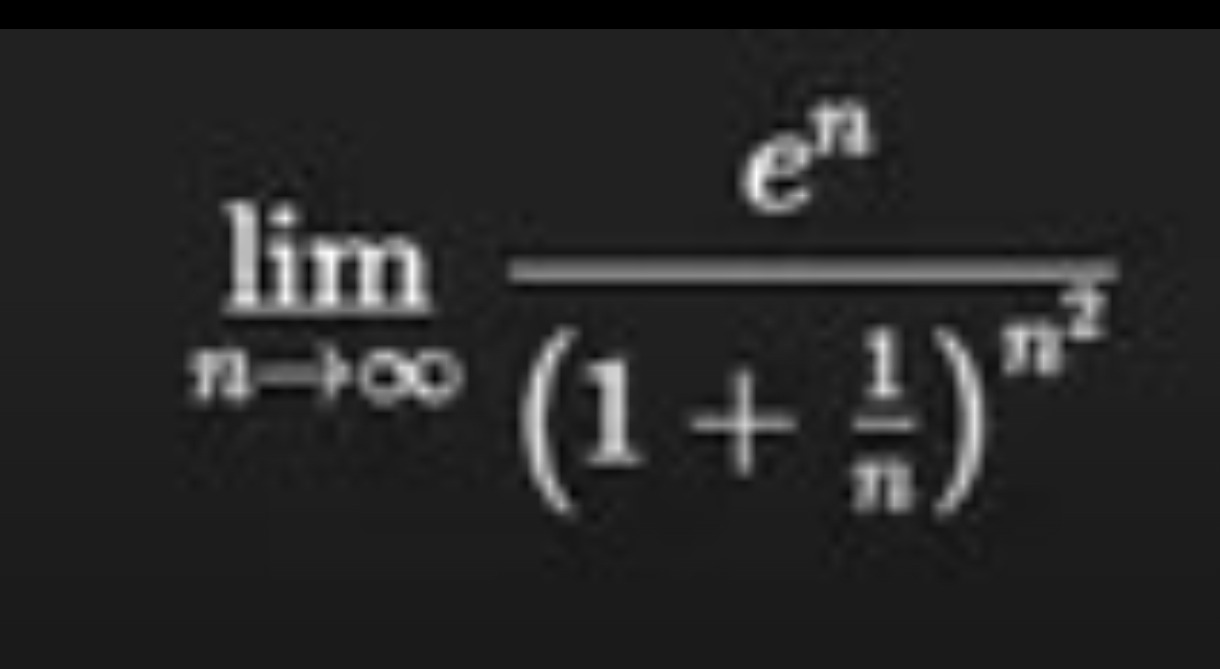Question
Question: $\lim_{n\to\infty} \frac{e^n}{(1+\frac{1}{n})^{n^2}}$...
limn→∞(1+n1)n2en

e
Solution
To evaluate the limit limn→∞(1+n1)n2en, we can first take the natural logarithm of the expression.
Let L=limn→∞(1+n1)n2en.
Consider lnL:
Using logarithm properties, ln(a/b)=lna−lnb and ln(xy)=ylnx:
lnL=n→∞lim[ln(en)−ln((1+n1)n2)] lnL=n→∞lim[n−n2ln(1+n1)]This limit is of the indeterminate form ∞−∞. To evaluate it, let x=n1. As n→∞, x→0. Substituting x into the expression:
lnL=x→0lim[x1−x21ln(1+x)]Combine the terms into a single fraction:
lnL=x→0limx2x−ln(1+x)This limit is now of the indeterminate form 00. We can evaluate it using either L'Hopital's Rule or Taylor series expansion for ln(1+x).
Method 1: Using Taylor Series Expansion
The Taylor series expansion for ln(1+x) around x=0 is:
ln(1+x)=x−2x2+3x3−4x4+…Substitute this into the expression for lnL:
lnL=x→0limx2x−(x−2x2+3x3−O(x4)) lnL=x→0limx22x2−3x3+O(x4)Divide each term in the numerator by x2:
lnL=x→0lim(21−3x+O(x2))As x→0, all terms containing x go to zero:
lnL=21Method 2: Using L'Hopital's Rule
Since the limit is of the form 00, we can apply L'Hopital's Rule by differentiating the numerator and the denominator with respect to x:
lnL=x→0limdxd(x2)dxd(x−ln(1+x)) lnL=x→0lim2x1−1+x1Simplify the numerator:
lnL=x→0lim2x1+x(1+x)−1 lnL=x→0lim2x1+xx lnL=x→0lim2x(1+x)xCancel out x (since x=0 in the limit process):
lnL=x→0lim2(1+x)1Substitute x=0:
lnL=2(1+0)1=21Both methods yield the same result for lnL. Since lnL=21, we can find L:
L=e1/2=e